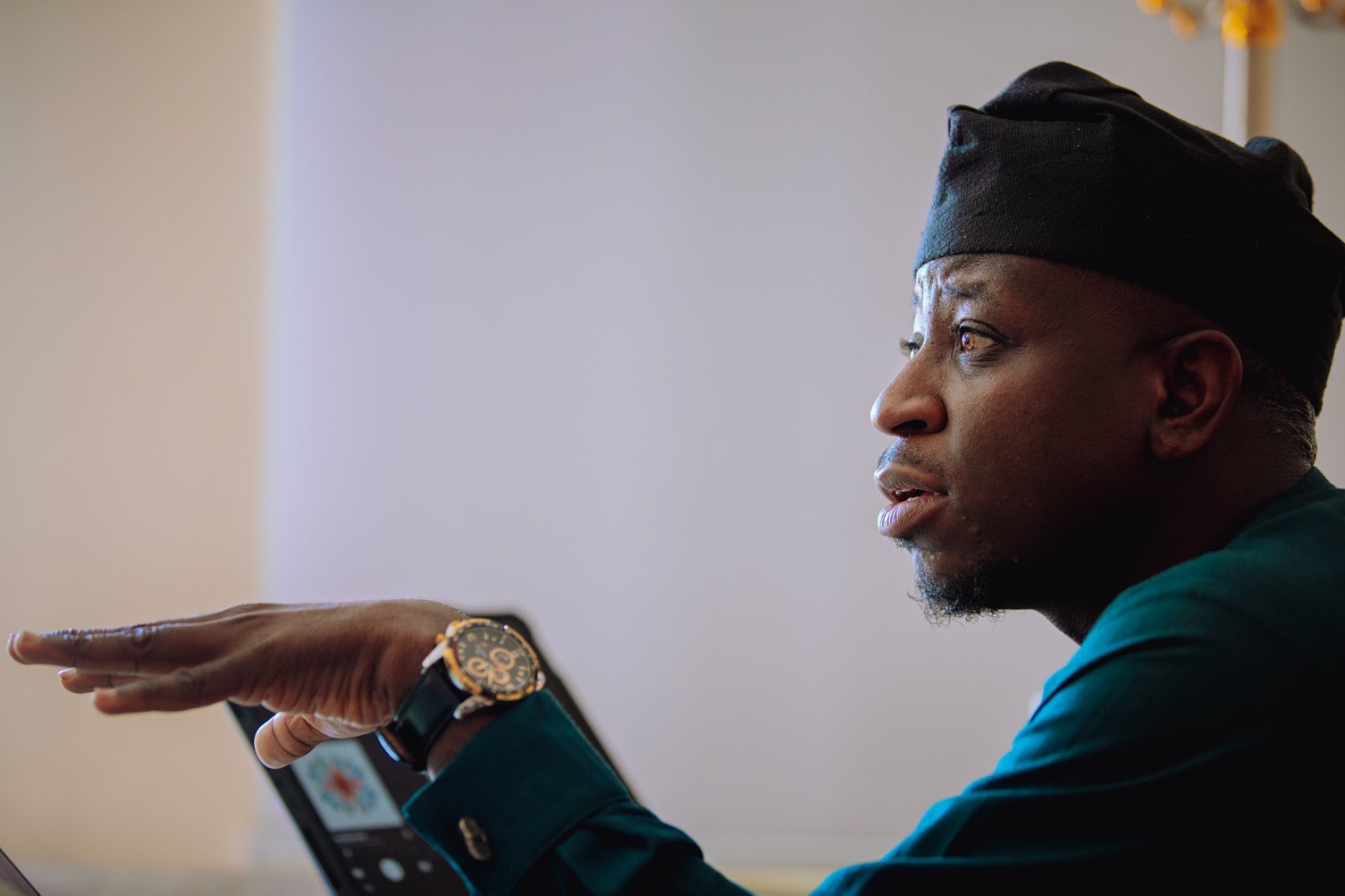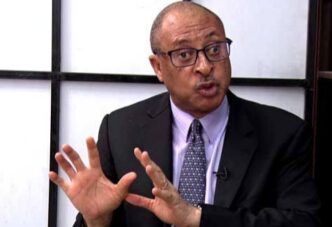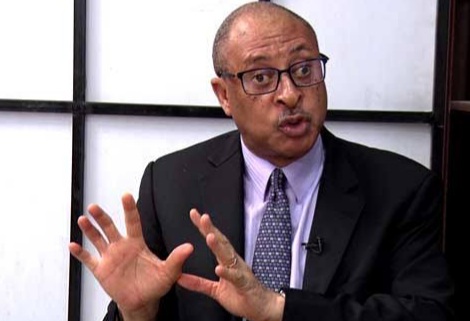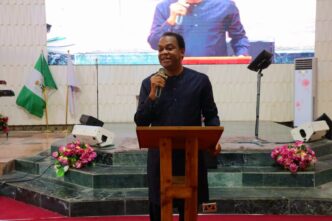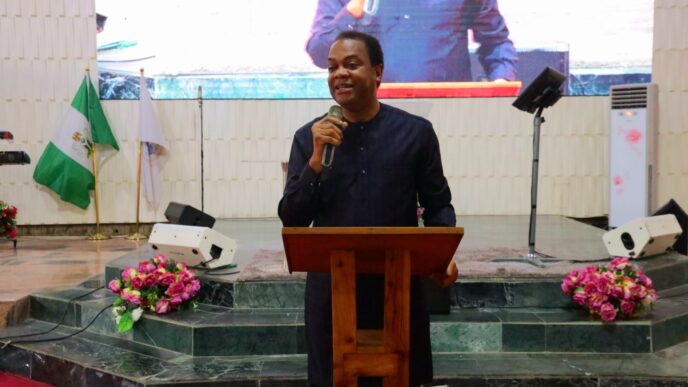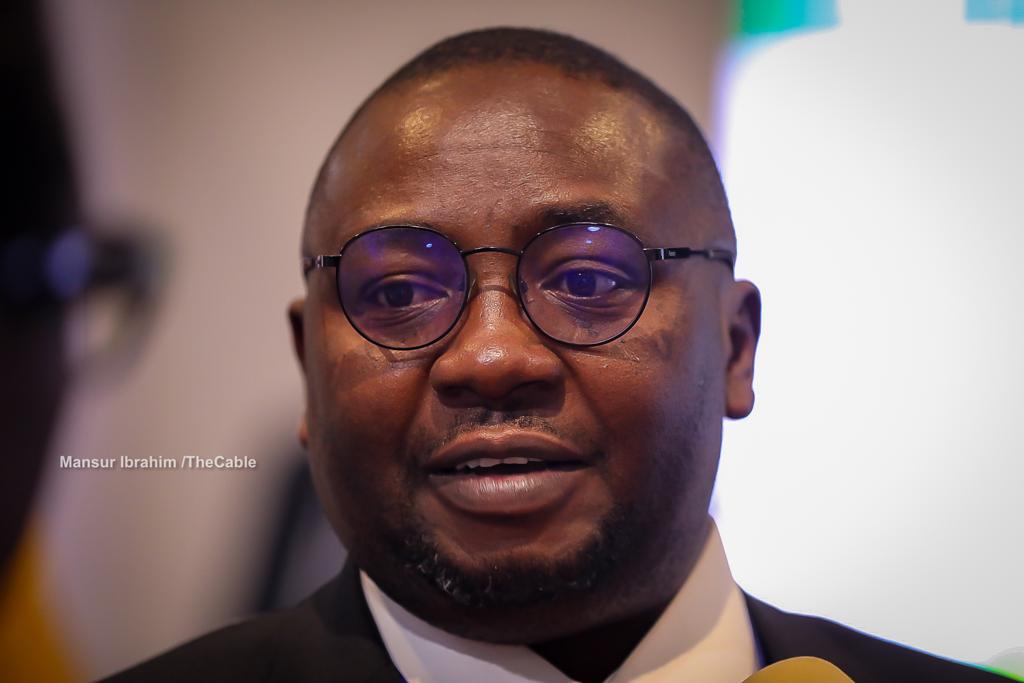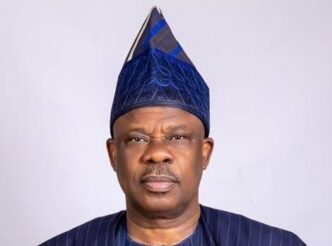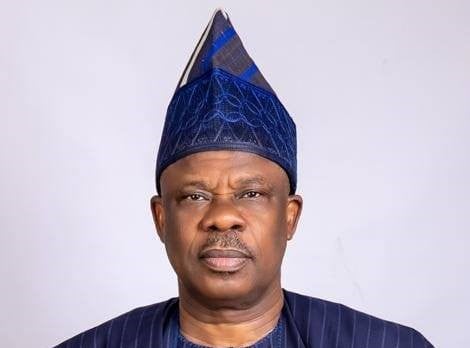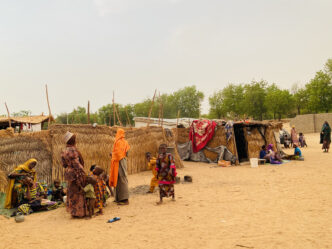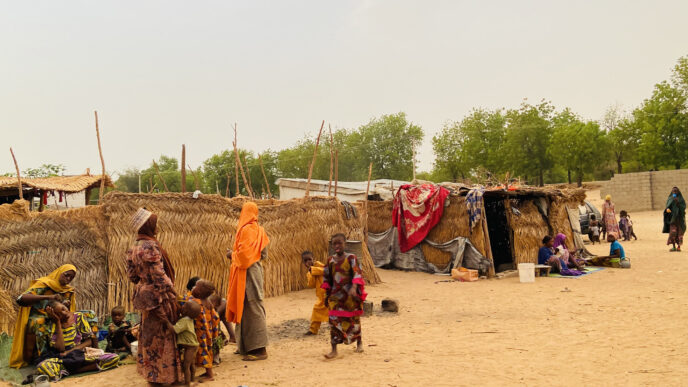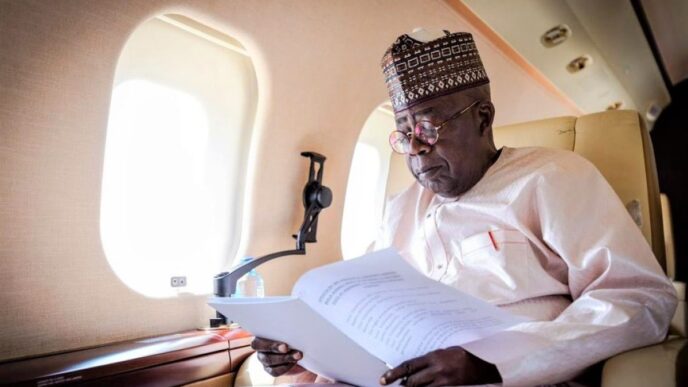Seun Fakuade, the Commissioner for Innovation, Science, and Digital Economy
In a decisive effort to establish Ekiti as a top innovation and technology hub in Nigeria, Seun Fakuade, the commissioner for innovation, science, and the digital economy, has introduced a strategic blueprint to build a robust digital ecosystem in the state.
In an interview with TheCable’s VICTOR EJECHI, Fakuade discussed how the blueprint seeks to draw global talent, support local entrepreneurs, and keep Ekiti competitive globally by leveraging advanced technologies and adaptable governance.
TheCable: Given that the ministry you manage is relatively new in the state, can you provide an overview of your strategic vision and goals?
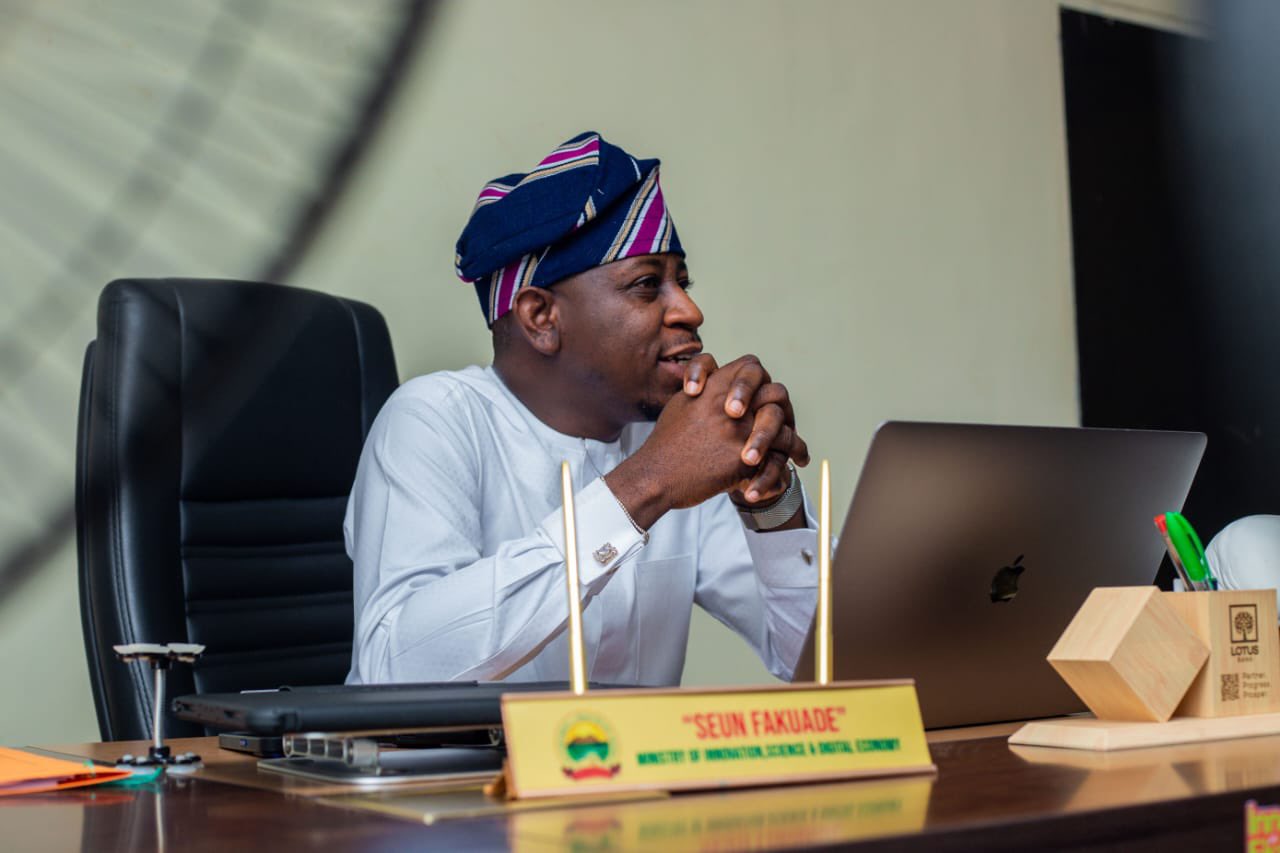
Fakuade: The ministry of innovation, science and digital economy was set up in September 2023 with the main aim of kickstarting or catalyzing the digital transformation of government, essentially e-government and e-governance.
Advertisement
Also, kickstarting private sector innovation programmes essentially jumpstarts the ecosystem in Ekiti state as a simple place for attracting startups, innovative disruptors, and techies into the state, both existing and those who will be potentially relocating to Ekiti. And, of course, sustaining that same drive, both in the public sector and for the private sector.
So, the focus of the ministry has been on those, would you say, due or tripod pillars, essentially, government, public sector, and private sector transformation.
TheCable: In 2023, you mentioned that the government plans to transform Ekiti into a leading creative technology hub within three years. How is that initiative going so far?
Advertisement
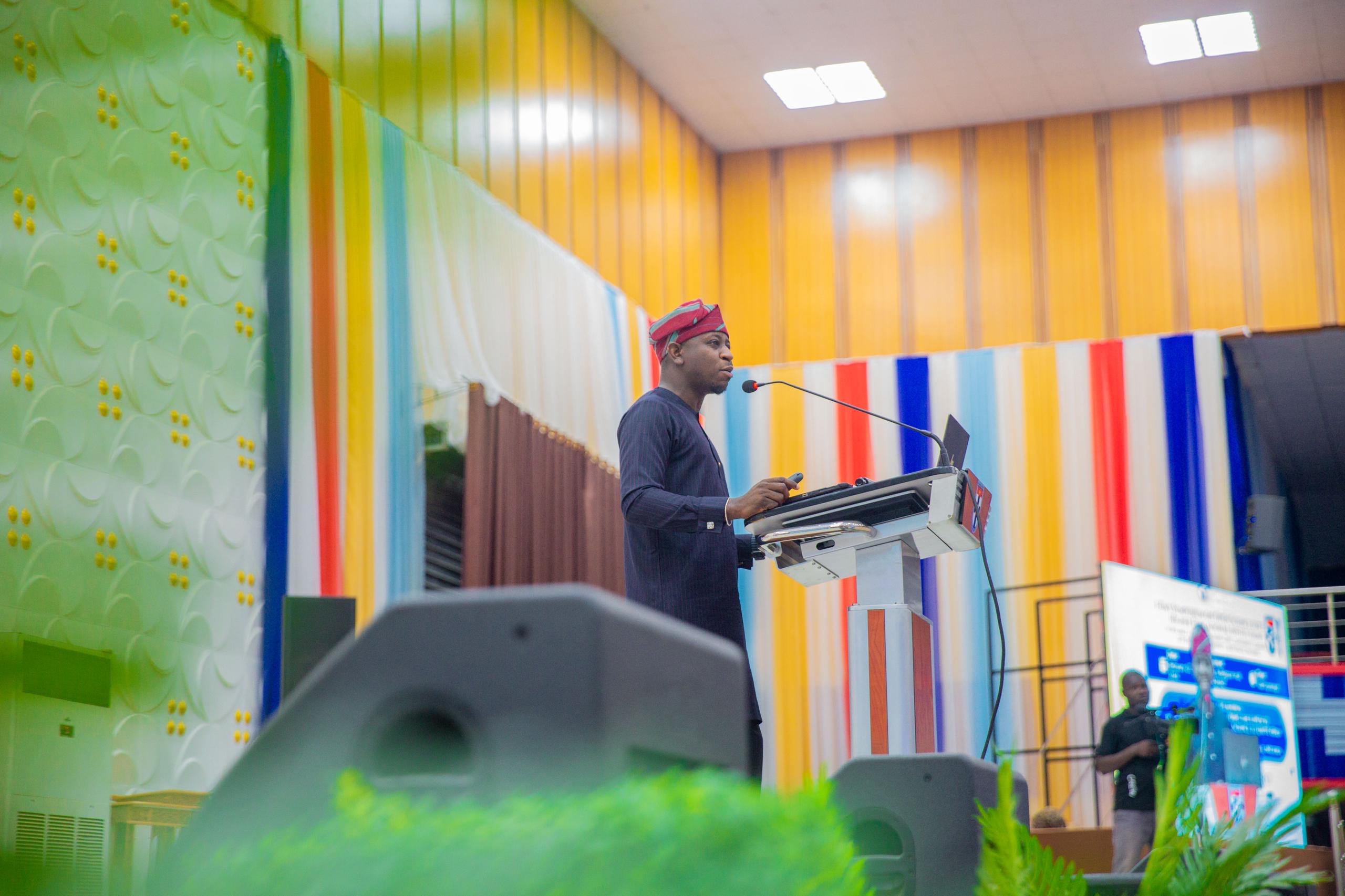
Fakuade: Okay, so there are very significant foundational pillars that need to be laid before you can claim to even scratch the surface of any of the ecosystems in the innovation ecosystem. That was very visibly laid down in our innovation strategy blueprint, released around November last year.
The critical pillars include setting up innovation policies to ensure that people who are relocating, moving into, or staying in Ekiti have the enabling environment that allows them to work, live, and thrive in the state.
The second one is setting up digital public infrastructure for the state. So you would say, for instance, fibre optics structure, data centre infrastructures, coworking spaces, innovation hubs, and ensuring that we have enough of the resources that will allow anyone who has little or no funding to come into Ekiti and enjoy the same public infrastructure that allowed them to thrive elsewhere around the world.
The third one, which we believe is very critical, is to provide what they call digital skills foundries. The digital skill centres will allow them to become very much equipped with the resources of the future of work skills. It will allow them to work either in Ekiti or remotely, setting up their own companies in Ekiti or working for other companies across the world while living in Ekiti state.
Advertisement
The fourth and fifth are enterprise formation and enterprise acceleration. How do we turn those who now have access to public infrastructure, who have access to very enabling policies, and who have been skilled properly in terms of their digital obligations or digital requirements, to then set up businesses, tech businesses, or build their products in Ekiti and set up their companies in Ekiti, employ people in Ekiti, and then thrive very well in Ekiti? That is the main thrust we’ll probably discuss when discussing the innovation parks and the Ekiti Knowledge Zone project.
Lastly, the government itself is not kept out of or caught unaware of the digital movements across the world. So, a digital government is also pivotal in our blueprints so that the government is responsive and able to move to the needs and specific requirements that citizens and startups who have come or settled in Ekiti continuously need to innovate and become competitive on a global scale.
TheCable: You said your approach to innovation in Ekiti state is place-based, focusing on building according to the state’s unique needs and strengths rather than simply copying and pasting. What are the specific needs and strengths of Ekiti that you are addressing?
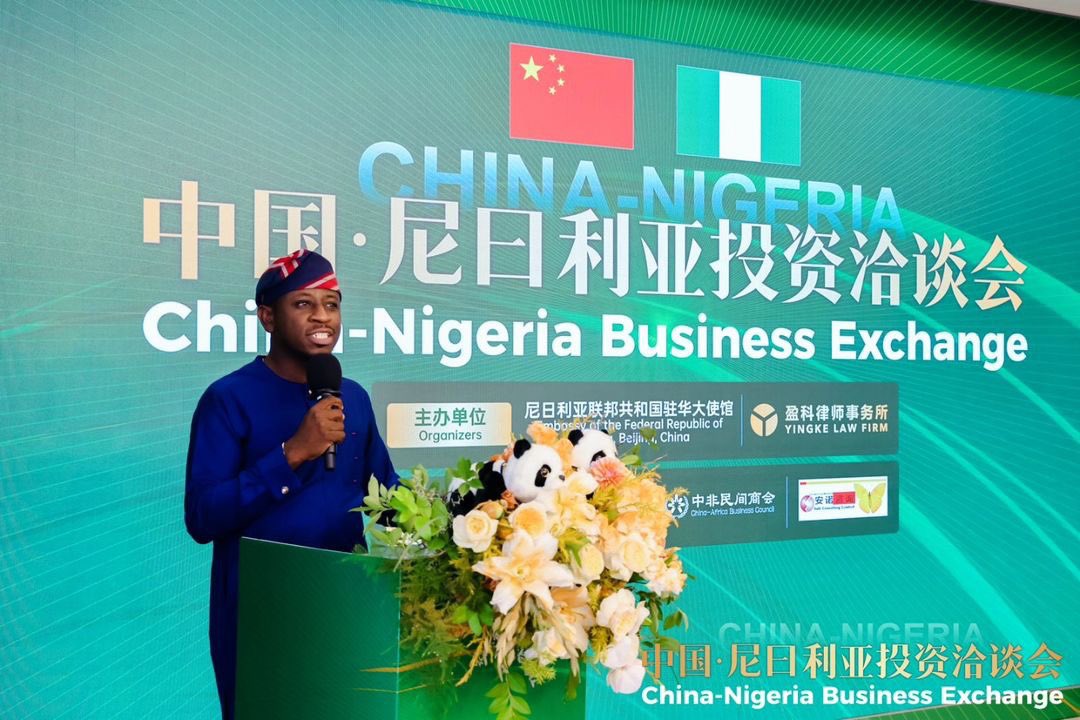
Fakuade: Recently, we got a series of approvals to set up innovation hubs. Essentially, you’ll see, as I said earlier, that this speaks to our innovation blueprint or strategy for innovation.
Advertisement
To answer your question, specifically, especially with regards to setting up these hubs, we’re not going to be setting up hubs that are coworking spaces alone, which is what you will almost find anywhere else across the country. We want to be known for specific things because we have comparative strength right now in them. Let me mention two of those areas.
In Ekiti state, we’re privileged to have Nigeria’s foremost university, Afe Babalola University, a priority institution, and other leading institutions like the Federal University Oye-Ekiti (FUOYE), the Ekiti State University (EKSU), and the Bamidele Olumilua University of Education, Science, and Technology (BOUESTI) in Ikere.
Advertisement
These universities are known essentially, almost especially, for their strong capabilities in robotics and mechatronics engineering, but more particularly mechatronics engineering.
Most of them have characteristic tendencies and capabilities in their students’ bodies and the faculty that they have in deepening both research and practical applications of mechatronics engineering for robotics.
Advertisement
What we’re also leaning into is artificial intelligence. In the past one year, we have seen in both needs assessment, feasibility studies, and continuous engagement with the ecosystem that we have a very strong, highly creative, highly versatile workforce that is developing fantastic products that we need to put a rallying point around both in terms of the enabling environment, the facilities, and the funding that they require to test ideas and create prototypes. Then, of course, to commercialise the product.
So, robotics, mechatronics engineering, and artificial intelligence are things we’re deeply exploring in Ekiti state, so that all of the functions for industrialisation, mechanisation for product making, and product testing are in Ekiti state. Then Ekiti becomes where you want to take your product to be tested in various stations.
Advertisement
Not to forget that the world is going to revolve around artificial intelligence and that we will not be caught flat-footed in not creating opportunities to set up artificial intelligence laboratories or centres in the state. So, these two things, amongst other things, are critical for us in our place-based innovation.
If you link this to our economy, Ekiti state is around 65 to 75% agrarian by nature, and most of what you still have, not just in Ekiti but across the nation, is deeply subsistence agriculture. We want to be able to say that Ekiti state, in the next couple of years, will start testing ideas that will mechanise agriculture in Nigeria.
TheCable: According to NBS data for Q1 2024, Ekiti state has around 1.6 million internet subscribers, ranking 35th out of 36 states. What steps are you taking to improve internet connectivity and digital infrastructure in the state?
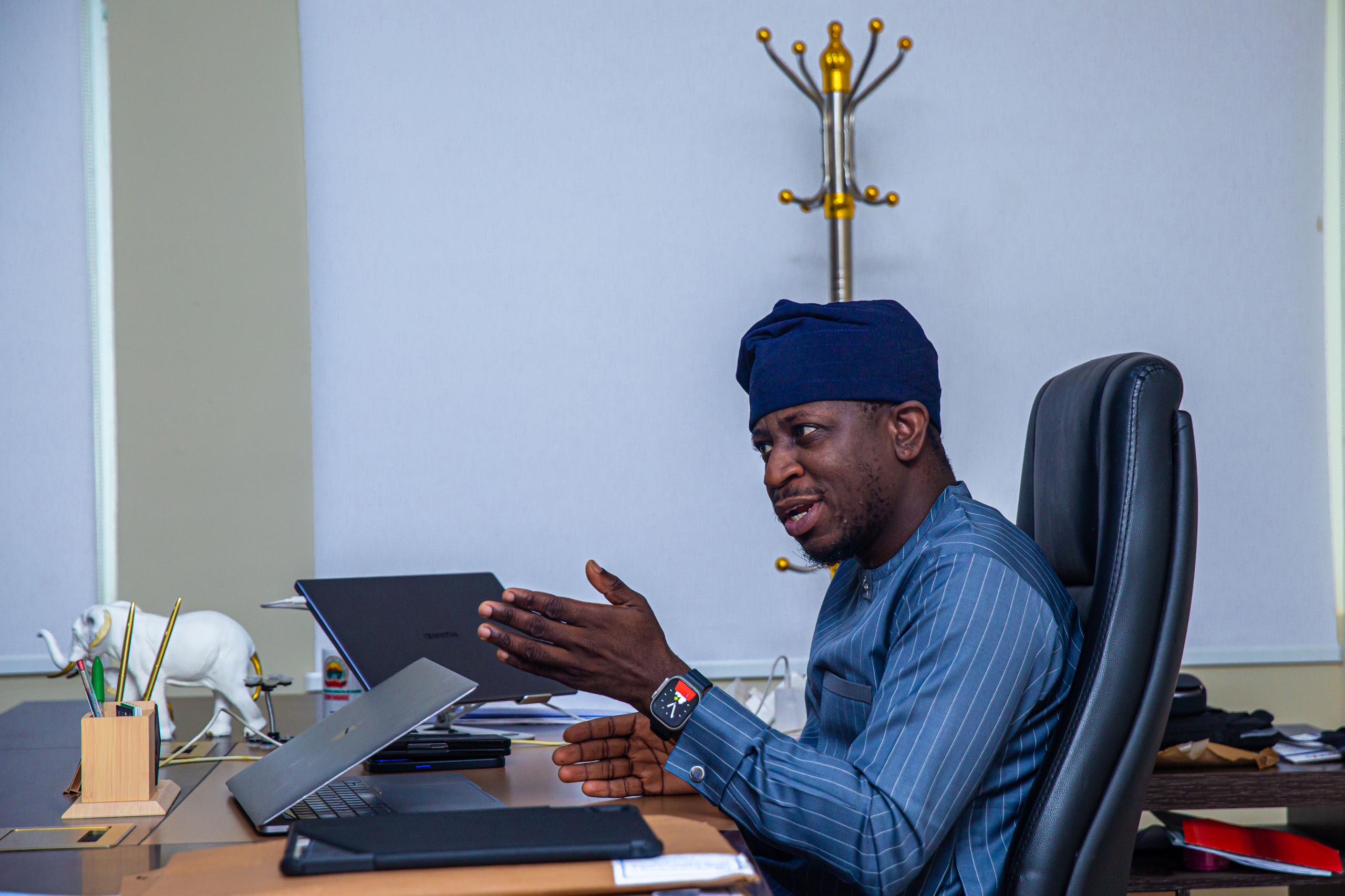
Fakuade: We have, I think, commissioned two independent assessments of fibre optics infrastructure investment for Ekiti. We have also received around seven proposals from telcos and service providers for fibre optics, not just for Ado-Ekiti, the metropolis, but the other areas of the state’s 16 local governments.
In terms of the state digital infrastructure, it is going to be a transformational investment when it’s done. But we are also not making hasty decisions without benchmarking or juxtaposing them across not just Nigeria but across the world.
On my trip to China recently, I sat down with Huawei to discuss fibre optics infrastructure in Ekiti. Same thing, we’ve received proposals from IHS from telcos regarding fibre optic infrastructure for Ado-Ekiti and other parts of the state.
The reason is to ensure that not only do we get the best, but we also get the most cost-beneficial proposal from different suppliers, who would give us quality at the most affordable price.
Yes, I agree with you. Fibre optics infrastructure is a critical digital public infrastructure for what we have planned. It will open up not just the current enthusiasts or natives but also digital migrants in the economy. The market woman in Ado Ekiti, the bricklayers’ community, and all the different informal sector communities can leverage digital infrastructure, especially fibre optics, sell their wares, promote their markets and become more competitive and prosperous.
But please, please know that fibre optic infrastructure, even the benchmarking examination we have done in Lagos and Edo states, is also not a very insignificant investment; it’s huge in terms of the resources that need to be committed to ensuring that it is not only set up but happens. Then, we’re thankful again that Ekiti state has one of the lowest right-of-way costs in the country.
TheCable: Can you discuss any successful public-private partnerships that were formed to advance your agenda? How will these partnerships enhance the innovation and digital economy of the state?
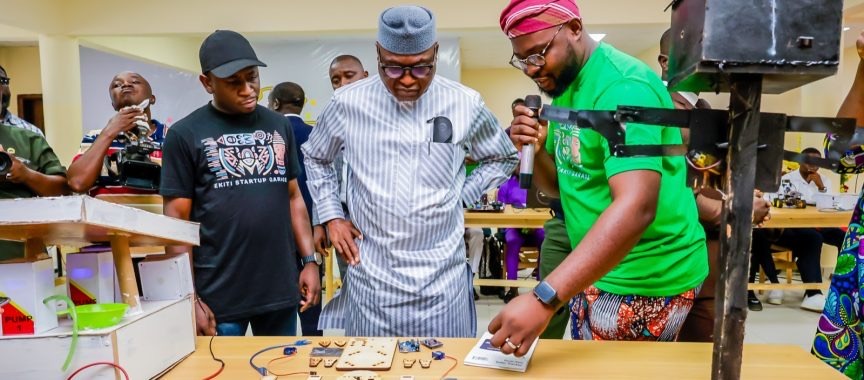
Fakuade: We have quite some ongoing prospective and future partners in the works. Let me mention just a few of them. We have the Knowledge Transfer Network (KTN), which is a UK government outpost in Nigeria working to kickstart and enable secondary city innovation centres in the country. We’ve been working with them for three years. You will hear more about the programming tomorrow when we launch the second edition of the Young Innovators programme, which is a call for innovators to pitch their deck, programme, and ideas so that they can be qualified for a residence programme. They will be trained to incubate their ideas, and then the finalist will win 7,000 pounds. So, KTN is one of our partners.
We have signed an MoU with some major companies that are going to kickstart digital programmes for more than 30,000 people in the state. We already have such partnerships ongoing with the Africa Youth Skills Development initiative, which is already taking care of 10,000 skilled people in the state. These are virtual digital skills programmes that are ongoing.
We have, of course, Voilà, Voilà is a partner that is also helping us shortlist and screen people who submit their proposals through their virtual artificial intelligence platform.
This is very important because, usually in the political environment, you have people who want to influence decisions for those who qualify for grants. Because what we’re building is deep-rooted and sustainable, we are very agnostic in terms of who qualifies for whatever programme that the government is bringing on board or that our partners are bringing on board. So Voilà platform is a very independent, artificial intelligence-driven platform that screens and pre-qualifies eligible people for different programmes that we are working on.
Before now, I’ve been working with Cybernetic for around two or three years and their work has been helpful for me in terms of preparing the state for its digital transformation programme. They have worked with us on different archiving programmes over the past two or three years. Not just that, we are working or planning to sign agreements with Wema Bank and some other banks in Nigeria, whose programmes are also aligned with our innovation blueprint strategy. This and more will be seen as we proceed.
TheCable: Many of us believe that charity begins at home. Can you explain how the state is utilising digital technology to enhance public services?
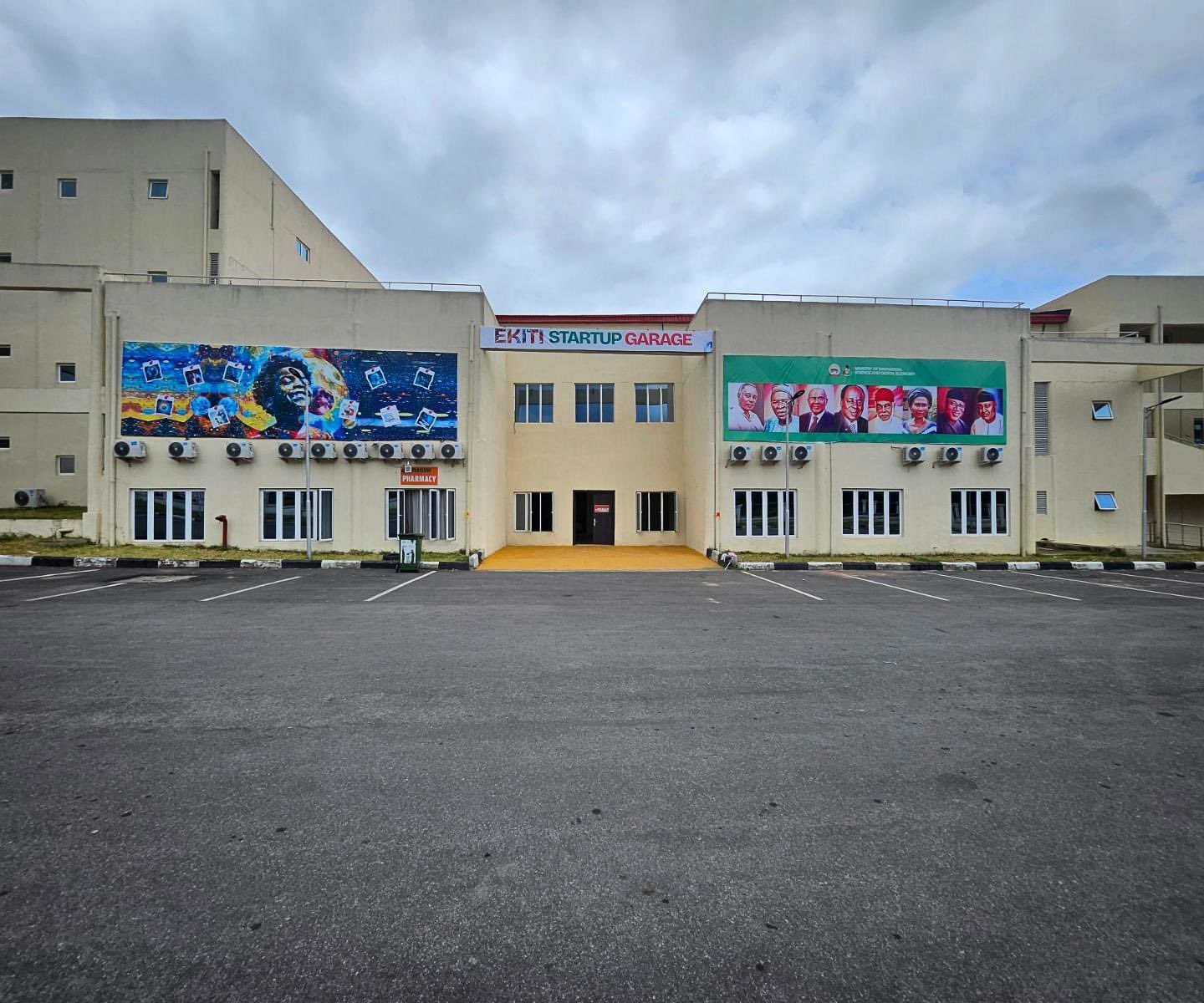
Fakuade: I want to thank, at this juncture, the leadership of my boss and the previous head of service in Ekiti state. The mistake that any serious-minded reformer must make is to think that reform of policy must not revolve around people. People should own reform for it to succeed.
As such, what we’ve been doing in the last couple of months since inception is to sit down and do a deep dive into the civil service. Not proposition, impose or instruct them on what to do. I’m making this reference very important because this has been a very significant learning curve for me as someone who came from the private sector, right. What has been helpful to me is to learn from my predecessor, my former boss and my current boss about approaches to the civil service or even dealing with people.
We are on the verge of setting up a public sector digital academy, which is extremely essential. We’re not only going to allay the fears of civil servants that they are not going to be laid off because no one is laying off anyone, but that they need to acquire new skills as the world moves towards more digital transformation programmes, and also so that we can become a much more responsive government.
This is very critical because I see and I’ve learned from a lot of other establishments or states across the world, and in Nigeria, that you cannot provide, for instance, laptops to civil service members when they don’t even know how to use them. You need to first equip them with the skills that are prerequisites for them to utilise those laptops before you even say you want to provide that equipment for them.
So, the public sector digital academy, the public sector digital fellowship that is going to come from my ministry is going to immerse young, brilliant innovators and digital enthusiasts or digital natives in those different ministries in the civil service so that they can become enablers, the key persons, the focal champions, to enable the civil service or the MDAs where they are posted to navigate the challenges of their digital literacy programme after they’ve been trained.
The archiving of materials or old files commenced in Ekiti state in 2021 and 2022. We know that there are more than a million physical files that need to be migrated or digitised, depending on when we go digital.
My ministry is already digital. We began digital operations on February 1, and even though we don’t have the full infrastructure right now, all of our operations are completely digital.
TheCable: I would like to know the relationship between your ministry and the federal ministry of digital economy. Is there a collaboration?
Fakuade: Because there’s the digital economy in my ministry and there’s science in my ministry, it relates to two critical federal ministries, maybe even three. The federal ministry of innovation, science, and technology is one. Then the federal ministry of communications, innovations, and digital economy is another. I have good relations with both ministries.
I mean, I wish things were much better in terms of the relationship. But yes, we do enjoy a very good relationship with the ministry. Interestingly, yesterday, I was with Uche Nnaji, the honourable minister for innovation, science and technology, in Abuja on a programme for the state. We also fixed new dates for meetings between states and the federal ministry to advance some common interests, especially now that we are advancing our comparative strength in robotics and artificial intelligence in the state.
So, it’s an area that I’ve intimated with the minister and he has promised we will have a strategic meeting. So, we have a very strong relationship in terms of investment collaboration, programme collaboration, and deepening the scientific innovation and technology landscape in Ekiti.
For the ministry of digital economy, the 3MTT programme is one that the state is supporting very strongly.
TheCable: How do you measure the success and impact of your initiatives in innovation, science, and the digital economy?
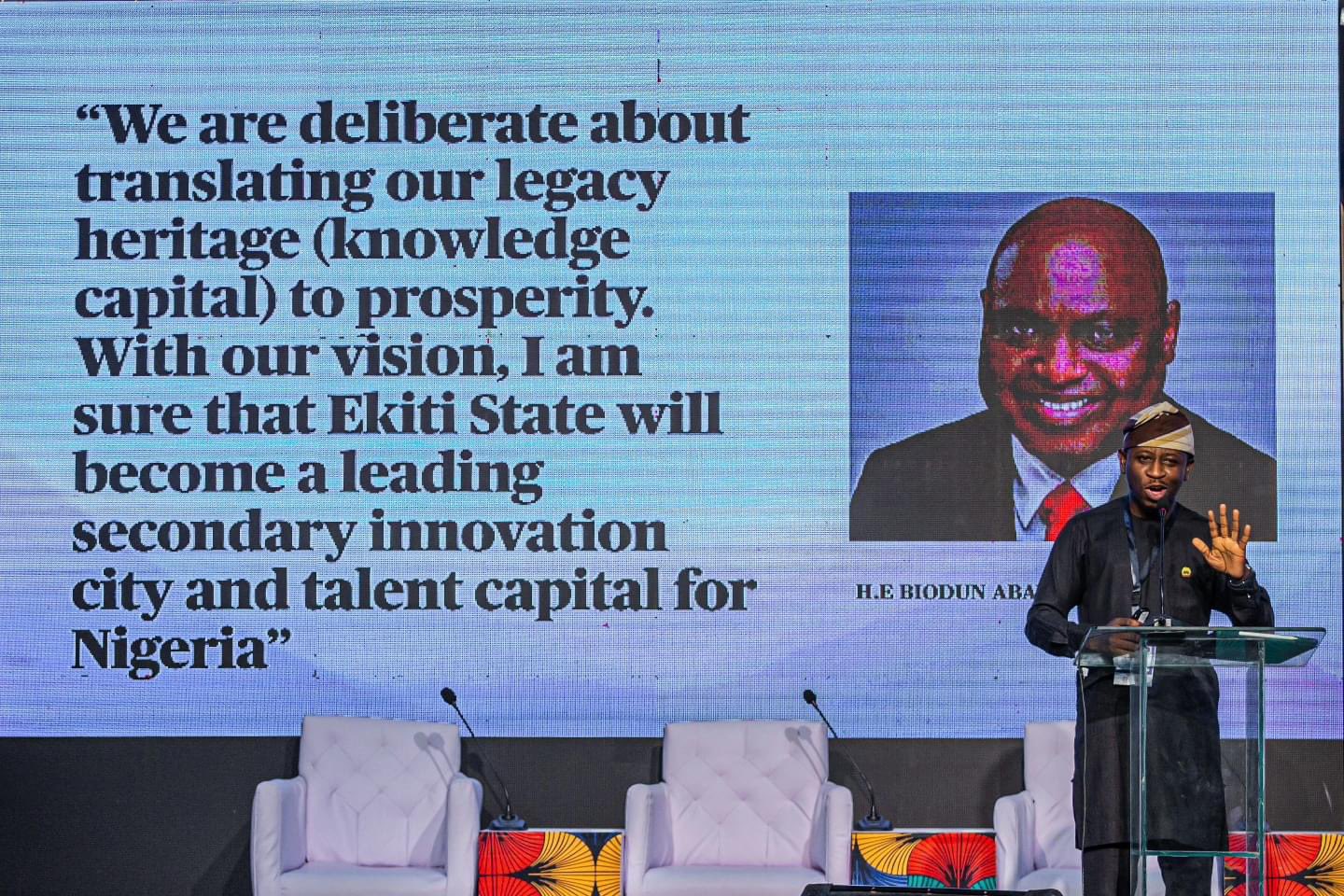
Fakuade: Well, like I said to you, impact in terms of policy takes longer than four years, especially in what we’re trying to build, especially if you have not even started building by the second year.
As I told you, this ministry is not up to a year. So, it will be hard to measure impact, but we can measure outcomes by the time the first term ends, and some of the outcomes will be the setting up of our innovation zones, our innovation hubs, and the successful training that we’re going to conduct. Not just that, but the deliberateness of us ensuring that those who have been trained start companies, build products, or become employable through placement opportunities and networking across the world or for companies that require their skills for placement.
We’re tracking. We already have an internal tracker, and we already have an ecosystem index mapping system in our office that allows us to know where we are, where we’re going, and the progress that we’re making. But more importantly, as I stated, prosperous economies have been built over the long haul. For us, for me, what is going to be significant is the solid, deep, rooted foundation that we’re laying down now that will stand the test of time.
If Mr Governor, in his wisdom, says I’m not going to be commissioner after two years, I have to be sure that the digital, public infrastructure that we’re setting up now will stand the test of time, and that other commissioners can come and lay on the foundation that we have built.
I have to be certain that the innovation zone and innovation parks that we’re building now have high-quality projects and programmes that have gone through robust design thinking steps to ensure that whoever takes over from Mr Governor after his two terms, or from me after my tenure has expired, can continue to lay on those foundations to build up prosperity.

